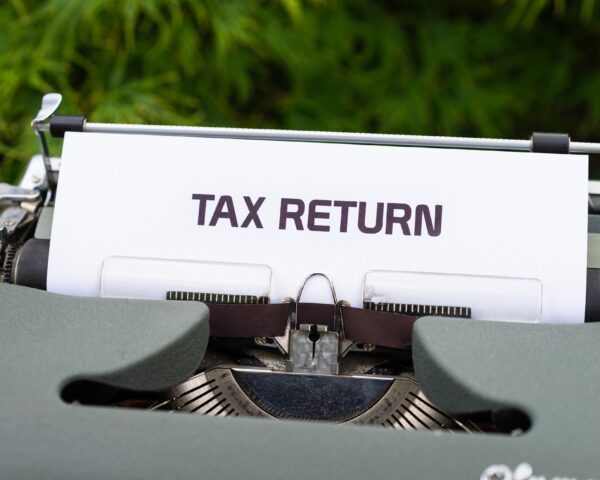If you’re working as a contractor with a Limited Company set up, there are a few different taxes to get your head around. There is some tax which your Company needs to pay, and then there are other taxes which you as the Company Director/ Individual needs to pay.
We have outlined them below, drop us a line at hello@pennybooks.io if you have any questions.
Corporation Tax
All companies have to pay this annually on their profits. The Corporation tax rate is currently 19% for tax year 19/20. You will need to complete a Corporation tax return (from CT600) annually, and submit this online. PennyBooks would do this for you.
If you fall inside IR35, then you will need to pay a ‘deemed salary’ – there is a calculator for this on the HMRC website. We can advise you on whether you fall inside IR35 or not.
VAT
You will need to register your Limited Company with HMRC if your VAT taxable turnover is more than £85,000 (in the last 12 months, or the next 30 days).
From the date of registration you have the following responsibilities:
- Charge the right amount of VAT
- Pay any VAT due to HMRC
- Submit VAT returns
- Keep VAT records and a VAT account
You have two options to apply VAT
- The standard scheme
- The Flat Rate scheme.
Standard scheme — You charge 20% VAT on your sales, you have to pay this to HMRC, you can reclaim 20% VAT on purchases/ expenses where you have been charged it.
Flat rate scheme — If you are not expecting to reclaim large amounts of expenses – you are better off registering for the Flat Rate Scheme – this works best for most contractors with VAT turnover of less than £150k.
You are able to charge 20%, but then repay to HMRC at a lower rate. Accountancy contractors usually use 14.5% (plus you get a first year discount of 1%, so just have to pay back 13.5%). The difference is seen as profit, and it is taxed along with your Corporation tax.
We will submit your VAT returns quarterly to HMRC on your behalf, luckily Xero is set up to deal with new 2019 rules on…
VAT/ Making Tax Digital
From 1 April 19 most VAT registered businesses will need to follow the rules for Making Tax Digital for VAT. This means you will need to:
- Keep Digital VAT records
- Sign up for NMaking tax Digital for VAT
- Use compatible software to submit returns
If you go with PennyBooks we will take care of this for you, and submit quarterly returns on your behalf via Xero. Simple.
Income Tax/ Self Assessment
You are a Company Director so you will need to register for Self Assessment as an individual, and you’ll need to complete a self assessment tax return annually (SATR) – PennyBooks will do this for you.
Income tax is assessed over the fiscal tax year 6th April – 5th April, and relates to your personal worldwide income.
- You have a ‘free’ personal allowance for the first £12.5k of income
- Then you are taxed at 20% up to £50k
- 40% for £50k – £150k
- 45% above £150k.
If you earn more than £100k your personal allowance is reduced at a rate of £1 for every £2 of income until it’s reduced to zero. By the time you hit £120,000 your personal allowance will have disappeared.
You must submit your tax return by 31st January each year with the payment, you may also have to make two payments on account (31st Jan and 31st July) towards the current year’s tax liability. If you pay yourself with a small salary, and then the rest dividends you will probably need to make payments on account. This is a tax efficient way to pay you – explained in more detail later in the Blog.
PAYE
When you pay yourself a salary from your Limited Company, the payroll will need to operate via the PAYE (Pay as your earn) scheme and report to HMRC through the real time information system (RTI).
Generally, your accountant will run your monthly payroll – and provide you a monthly payslip. Your Company is then responsible for paying any income taxes and National Insurance Contributions (NICs) owed on your salary to HMRC, typically quarterly.
As an ‘employee’ you will need to get a P60 form at the end of the tax year, this details total salary, minus any tax deductions for that tax year.
Your Limited Company will need to register as an employer with HMRC, and as a Director, you will need to be registered as an employee on the payroll with HMRC. Your accounting software should transfer the information to HMRC monthly (in ‘real time’) – yes, again Xero will take care of all of this for you, and we would manage your monthly payroll.
National Insurance Contributions (NICs)
These contributions qualify you for certain benefits and the state pension. You’ll pay these if your salary is over £166/week. There are different classes:
- Class 1 Employees NICs – You as a Director will need to pay these on any salary, rates are based on which category letter you are. We would usually look to minimise paying these as part of our tax planning salary suggestion.
- Class 1 Employers NICs – Your Company needs to pay these on your behalf, again rates are based on which category letter you are, and again we would look to minimise what your Company pays here
For example for a category letter A:
Class 1 Employees:
- Nothing on first £166/week
- 12% on earnings between £166.01 – £962/week
- 2% on earnings above £962
Class 1 Employers:
- Nothing on first £166/week
- 13.8% on all earnings above £166.01
Income tax and NICs for you and the Limited Company would be calculated by Xero when our team runs your monthly payroll, this will then all be sent off to HMRC for you, so you shouldn’t have anything to worry about.
Payroll Deadlines
Any tax due to HMRC must be paid monthly if the combined income tax and NIC liability of all of your employees averages £1,500 or more. If less – usually the case for contractors – you can pay quarterly.
Payments must be made to HMRC within 14 days of the end of the tax month, which falls on the 5th of each month. So by 19th of each month, or 22nd if you’re making an electric payment.
Dividend Income
As a Company shareholder, you can choose to pay yourself via dividends, if your limited company has made a profit after paying corporation tax and any other outstanding taxes.
In reality the most tax efficient way to pay yourself will be via a small salary, and then the rest via Dividends as National Insurance is not payable on Dividends (as it is on salaries).
Dividends must be distributed according to the % or shares each shareholder owns. As a contractor you will usually be the only shareholder so there should not be any issues here.
The free dividend allowance is £2,000 for tax year 19/20, you only pay tax on dividend earnings above the free dividend allowance in the tax year. The tax you pay depends on which tax allowance you are in, for 19/20 tax year:
- Basic rate – 7.5%
- Higher rate – 32.5%
- Additional rate – 38.1%
You add your income from dividends to your other taxable income to work out your tax band, and you may well end up paying tax at more than one rate.
Dividends that fall within your Personal Allowance do not count towards your dividend allowance, for example:
You get £20,000 in dividends in the 19/20 tax year. The dividend allowance is £2,000, so you pay tax on £18,000 of dividends.
Your other taxable income is £21,000. Add this to your dividends of £20,000, and your total taxable income is £41,000.
You pay a rate of 7.5% on £18,000 of dividends because your total taxable income is within the basic rate band.
Board Meeting
To comply with the law, your Company must hold a board meeting to agree the dividend declaration, and must minute the meeting. The directors must provide each shareholder with a dividend voucher (this can be electrically generated by our Xero accounting software). This paperwork is important, and HMRC may ask to see it.
Dividends vs Payroll
A tax efficient company director’s salary should aim to sit between two National Insurance thresholds:
1) Lower earnings limit (£118/week) – As a director you will want to earn above this to maintain your entitlement to future benefits and state pensions.
2) The Primary threshold (£166/week) – The aim is to sit below this, if you earn above this threshold you will have to start paying NICs, both as a Director and as a Company on behalf or you as a Director.
You will pay Class 1 NICs for any weeks you earn over the primary threshold, even if your annual income overall is less than the Primary threshold – so it’s important to get this right.
Talk to PennyBooks
The above is intended to be an introduction to the taxes you will need to navigate as a contractor. Operating as a Limited Company is a tax efficient way to be set up. Talk to us at PennyBooks, and we can advise you on the most tax efficient way to pay yourself, and how this will work in practice. We can also advise you on how much you will need to save for tax bills, and when you’ll need to pay them.









